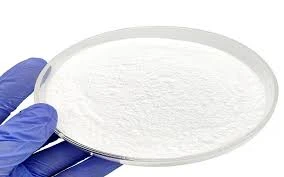Polymer Water Treatment Chemicals An Essential Component in Modern Water Management
Water treatment is a critical process in maintaining public health, environmental sustainability, and industrial efficiency. Among the myriad of chemicals used in this field, polymer water treatment chemicals stand out for their versatility and effectiveness. These polymers play a vital role in various water treatment applications, from municipal facilities to industrial processes, helping to clarify water, remove contaminants, and ensure compliance with safety regulations.
Understanding Polymer Water Treatment Chemicals
Polymers are large molecules composed of repeated subunits, and in the context of water treatment, they are utilized primarily as flocculants and coagulants. Flocculation is the process where small particles clump together into larger aggregates, known as flocs, which can then be removed from the water. Coagulation, on the other hand, involves the neutralization of charges on suspended particles, facilitating their aggregation. These processes are essential in treating raw water to meet safety standards.
Polymer water treatment chemicals can be categorized into two main types anionic and cationic polymers. Anionic polymers carry a negative charge and are typically used in situations where positively charged particles are predominant. Conversely, cationic polymers are positively charged and are particularly effective in treating negatively charged particles. The choice of polymer depends on the specific characteristics of the water being treated and the type of contaminants present.
Applications of Polymer Water Treatment Chemicals
1. Municipal Water Treatment In municipal water treatment plants, polymer chemicals are used to remove suspended solids, organic matter, and pathogens from drinking water. The application of these polymers enhances sedimentation and filtration processes, significantly improving water clarity and quality. This is essential for ensuring that the treated water is safe for consumption.
polymer water treatment chemicals

2. Industrial Wastewater Treatment Industries producing wastewater, such as textiles, paper, and food processing, often rely on polymer chemicals to enhance the removal of suspended solids and colloidal particles. By facilitating the flocculation process, these polymers help industries adhere to environmental regulations, reduce effluent pollutants, and recycle water, thus conserving resources.
3. Sludge Management Polymers are also instrumental in thickening and dewatering sludge generated during the water treatment process. By aiding in the consolidation of sludge, polymers minimize the volume of waste, making disposal more manageable and cost-effective. This is particularly important as regulations surrounding waste disposal become more stringent globally.
4. Aquaculture and Agriculture In aquaculture, polymers can be used to maintain water quality by removing nutrients and harmful particles that may affect fish health. Similarly, in agriculture, they serve in soil management by enhancing water retention and nutrient availability, ultimately improving crop yields.
Advantages of Using Polymer Water Treatment Chemicals
The adoption of polymer water treatment chemicals offers several advantages. They are often more efficient than traditional coagulants, allowing for lower dosing rates and producing minimal sludge. Additionally, these polymers can operate effectively across varying pH levels and temperatures, making them suitable for diverse applications. Their ability to improve the overall efficiency of water treatment processes leads to significant cost savings for municipalities and industries alike.
Conclusion
In conclusion, polymer water treatment chemicals are indispensable in the quest for cleaner and safer water. Their role in enhancing the efficiency of water treatment processes across various sectors underscores their importance in both public health and environmental sustainability. As global water challenges intensify, the continued research and development of polymer technologies will be vital in ensuring that we meet our water management needs effectively and responsibly. With innovations in polymer chemistry, the future of water treatment looks promising, paving the way for more sustainable water practices worldwide.

